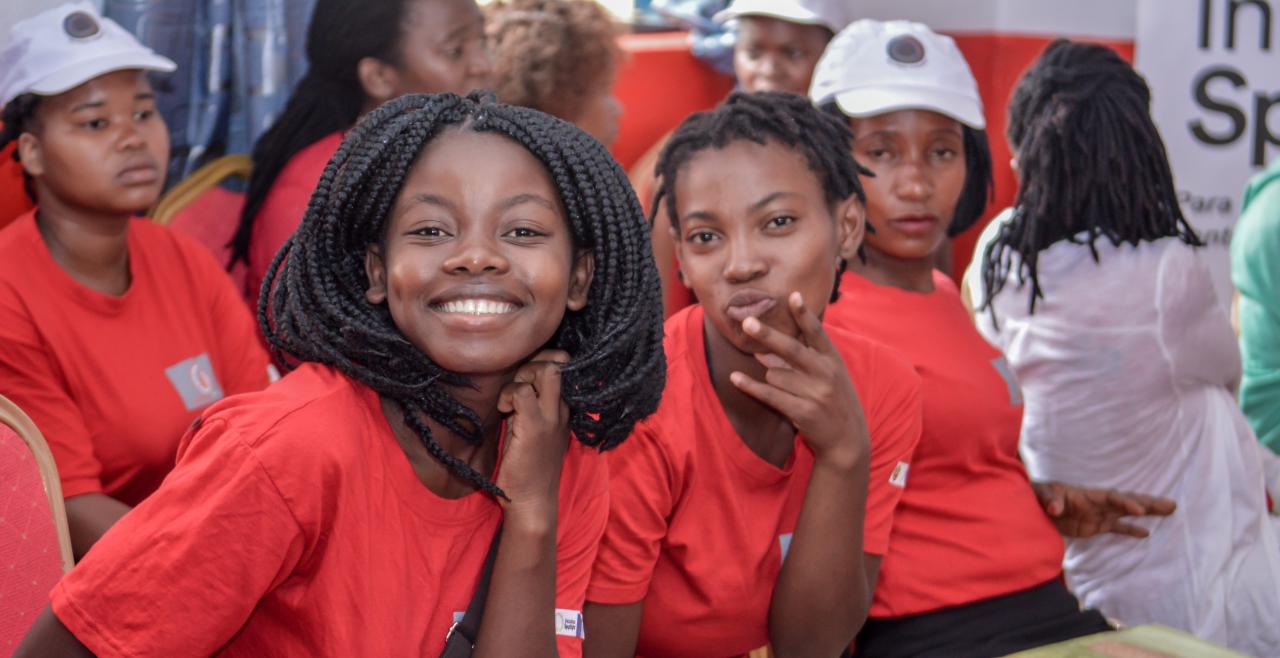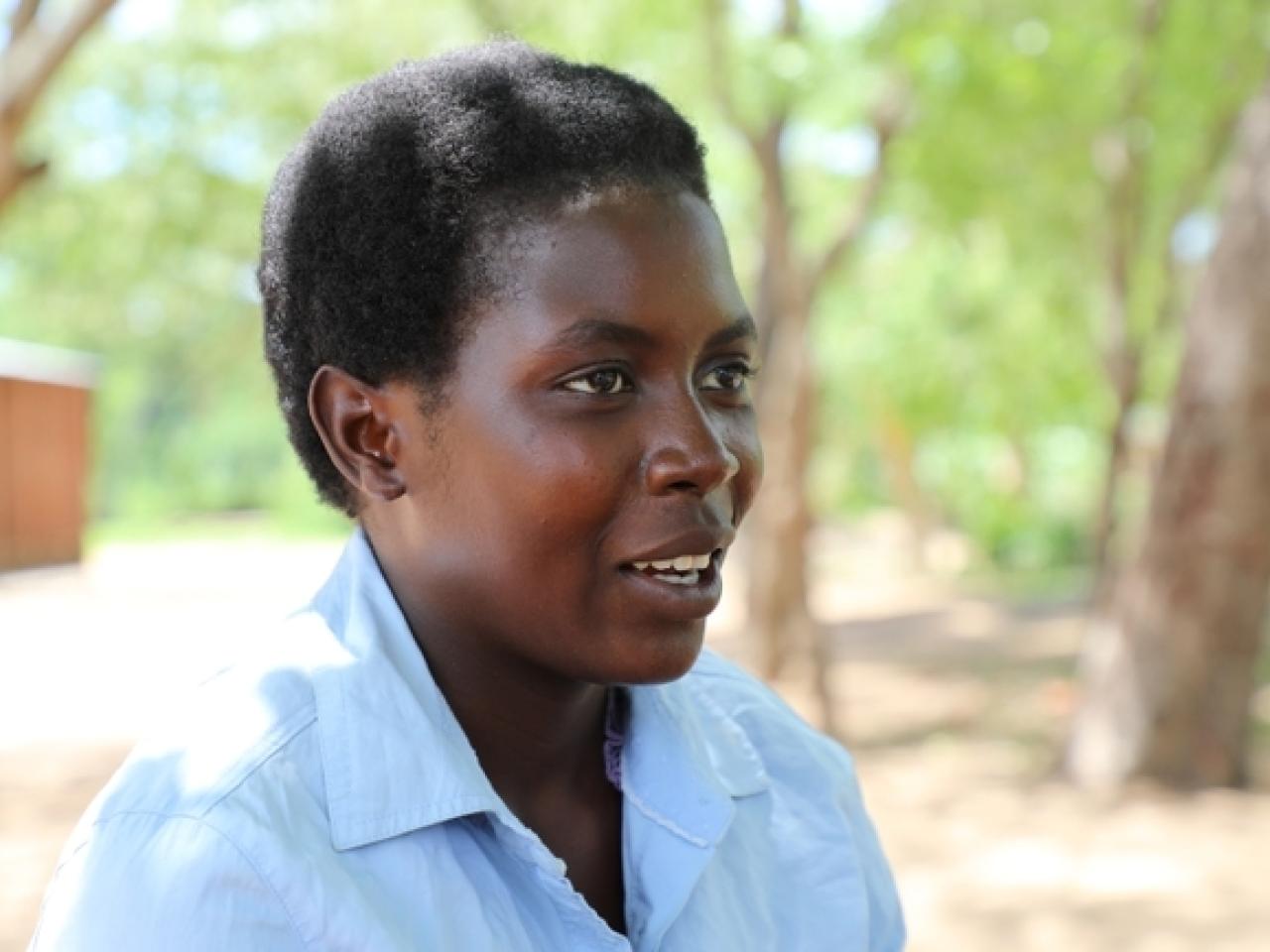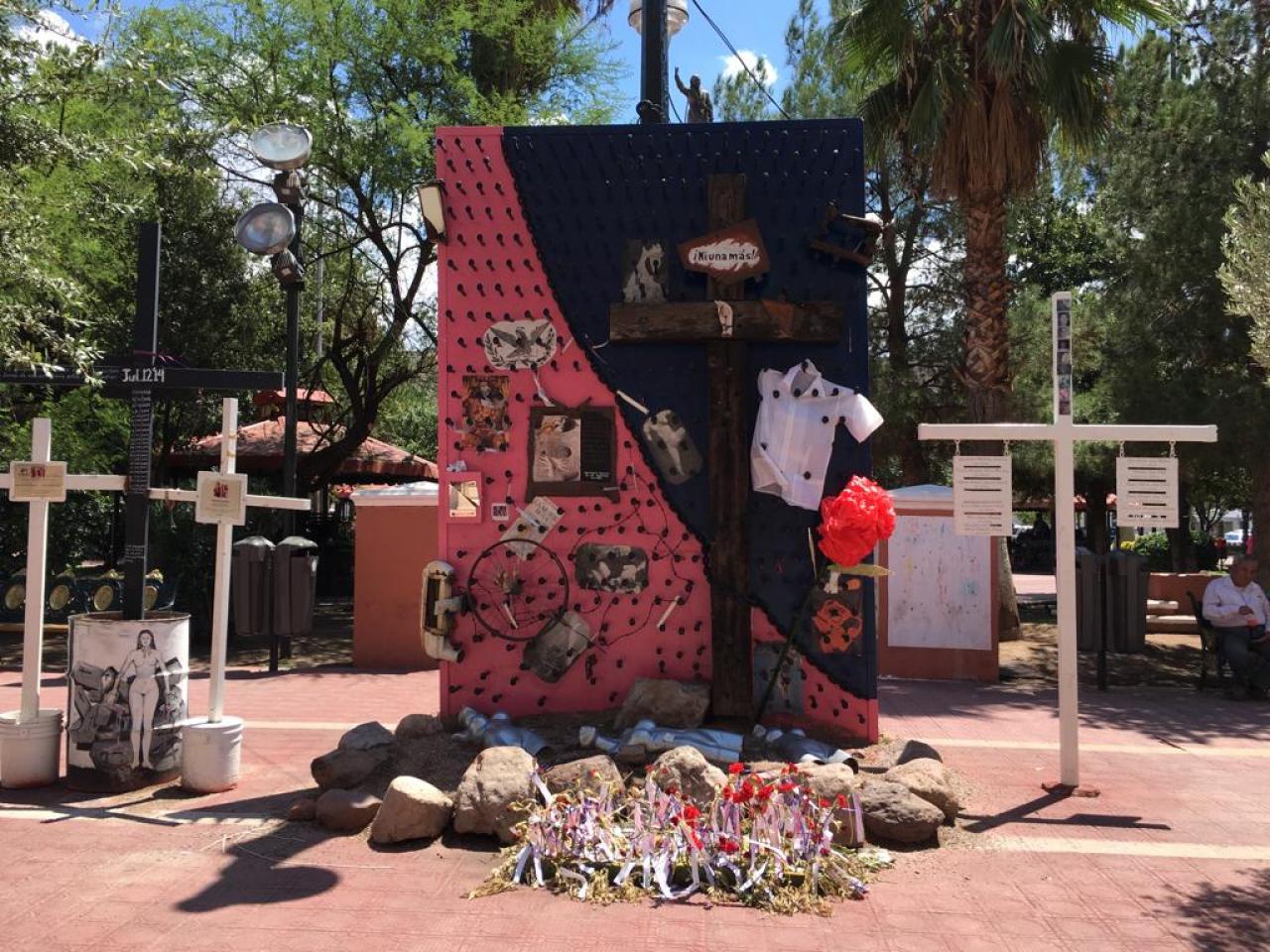Community activists bring hope to survivors of violence in Mozambique

Women and children chat under a tree in the courtyard of a women’s shelter in Manica province, central Mozambique. Among them is Maria*, 24, a recently-arrived survivor of domestic violence.
Maria’s relationship with her husband reached the point of no return on the day he beat her while she was pregnant. Her neighbours knew Maria had suffered violence for years and offered her a bed for the night. When Maria decided to return home, she found her husband would not let her back in. Pregnant, injured and alone, she slept outside under a wrecked car.
The next morning, community activists from local organizations LeMuSiCa and Luarte arrived to tell Maria about the women’s shelter.
Many cases of violence: few reported, fewer resolved
Twenty-five per cent of women in Mozambique have suffered physical or sexual violence during their lives. More than half of those remain silent due to family pressure, fear of retaliation or simply because they believe violence is normal. In Manica Province, the rates of physical violence against women are among the highest in the country, with 27 per cent of women aged 18-49 experiencing violence at some point in their lives.
"I can approach another woman and tell her that she does not need to suffer." - Maria*, 24
“There have been many cases of violence in our province but few were reported,” says Laura Machava, a gender focal point at the district’s health, women and social action services. Sometimes, survivors or their families seek settlement without involving the authorities. Even when incidents are reported, there are few quality services for survivors. Poor referral processes between the police, health, social action and justice sectors mean many women fall through the gaps. Many cases simply remain unresolved.
Local organization LeMuSiCa brings hope to survivors of violence in Manica by providing assistance and shelter to women and children. Working with grassroots organization LUARTE, they educate communities about sexual and gender-based violence. Activists help identify women who are experiencing abuse and support them to seek help through the police or justice system, or to access social services and medical care. They also work with survivors to find longer term solutions, such as accomodation and income.
"If we don’t speak up, violence will never end.” - Maria*, 24
Here, our hearts can find some peace
At the shelter, Maria received psychosocial support and medical treatment. Unwilling to return to her husband, she intends to stay at the shelter until her baby is born. After a few months of rest, Maria plans to leave the shelter and start afresh.
“Here our hearts can find some peace,” says Maria. She’s escaped violence but she has also learned that survivors have choices. “I can approach another woman and tell her that she does not need to suffer. I have learned that we can report because if we don’t speak up, violence will never end.”
The Spotlight Initiative-supported intervention has helped nine women and girls in the Chimoio district of Manica Province escape extreme violence in the past six months alone. Countless others have received assistance reporting violence, accessing medical treatment or navigating the justice system.
*name has been changed
By Leonor Costa Neves with reporting by Laura Lambo.
Lead image: LUARTE activists Sandra Waluza, Saroya da Cruz and Júlia Lembane pose for a photograph during a training session. Photo: Etevaldo Orlando Jack/LUARTE .


